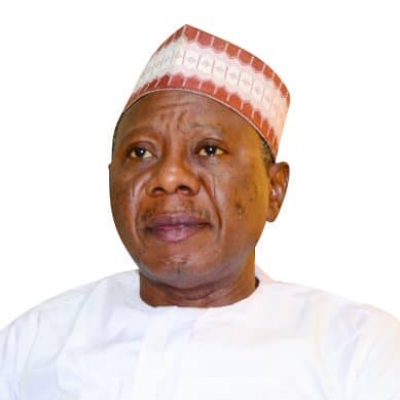The Institute for Agricultural Research (IAR), Samaru was established in 1922 as the research division of the Department of Agriculture for the defunct Northern region of Nigeria. IAR was formally transferred by law to the later established Ahmadu Bello University (ABU) on 4th October,1962. With the Federation of the University in 1975, IAR was affiliated in accordance with statute 14 of the University.
The Institute is poised to serve as centre of excellence for sustainable, affordable, efficient and easily adoptable technologies to enhance farm productivity and product utilization in Nigeria.
To generate, disseminate and impart improved agricultural technologies for enhanced crop production and utilization to achieve national self-reliance in food and industrial raw materials and have surplus for export.
National mandate for the genetic improvement of maize, cowpea, sorghum, cotton, sunflower, Jatropha, Castor, Oat and groundnut together with research into their respective agronomy and plant health. Irrigation engineering and irrigated crop production; mechanization of crop production and post-harvest research.
Legumes And Oil Seed Research
Research in horticultural crops has been part of Institute for Agricultural Research (IAR) activities from the 1970s until 1987, the crop improvement aspect or research was withdrawn and, together with all germplasm material the Institute had, transferred to NIHORT. In 2013,
Institute for Agricultural Research
The Programme is one of the largest research Programmes in the Institute that is responsible for development and release of cereal crop varieties of high grain yielding abilities and nutritional qualities, resistance to diseases and pests, tolerance to drought and responsiveness to good agronomic management and post-harvest technological practices.
The Programme has as its broad objective the development and evaluation of appropriate technologies for production and post-harvest operations of Institute for Agricultural Research (IAR) mandate crops in North West Agro-Ecological Zone.
The Cotton research Programme carries out its activities by a multi-disciplinary team including plant breeders, plant physiologists, agronomists, crop protectionists, soil scientists, agricultural economists and rural sociologists.
The Programme focuses on identification of farming constraints, analysis of farming systems and the development/testing of appropriate technologies for IAR mandate crops.
What is now known as Irrigation Research Programme (IRP) was the Soil and Water Management Section (SWMS) of the Institute for Agricultural Research (IAR) resident in the Department is Soil Science Ahmadu Bello University, Zaria in the 1970s
The program aims to bridge the gap between agriculture and industry while addressing nutrition and poverty alleviation. It also has an additional goal of adding value to our mandated crops for use and production. Currently, it consists of two units: the Analytical Unit and the Nutritional Unit.
Yes, IAR has bred and released various varieties of its mandate crops suitable for production across all the agro-ecological zones of Nigeria. Kindly contact the numbers provided on this website with the name of your state and the crop(s) of interest for our scientists to guide you appropriately.
The Institute for Agricultural Research (IAR) Samaru has developed and released several varieties of its mandate crops suitable for production across the agro-ecological zones of Nigeria. These crops include 6 cotton varieties; 20 cowpea varieties; 11 groundnut varieties; 53 maize varieties; 23 sorghum varieties; and 4 sunflower varieties as contained in the Institute’s Crop Variety Descriptors (2021 Edition). These were developed to solve the agricultural production problems of Nigerian farmers. Foundation seeds of these varieties could be obtained at the IAR Seed Company Ltd, located within the IAR premises at ABU, Samaru, Zaria.
IAR has international standard manpower and state-of-the-art facilities for training and knowledge transfer. The Institute organizes and conducts trainings and capacity development sessions for farmers, extension personnel, policy makers and other agricultural stakeholders across value chains. Such are usually organized based on demand and in collaboration with partners.
The capital required depends on several factors. These include type of enterprise, type of crop(s), land ownership, land size, and farming system. Contact the Institute for further guidance on farm planning and budgeting.

Executive Director
Deputy Director
Assistant Director (Research)

Asst. Director, Extension Monitoring & Evaluation Unit

Institute Secretary

Finance Officer

Agricultural Innovation
Bill & Melinda Gate Agricultural Innovation

Lee Group of Companies
Lee Group of Companies.

AATF
Promotion of agricultural innovations to through public-private partnerships to boost food production in the continent.
Nigeria Security and Civil Defence Corps (NSCDC) Sabon-Gari Division Visits IAR to Strengthen Security Collaboration
IAR Veterans Volleyball Club Hosts Vibrant Tournament Today, Promoting Fitness, Fellowship & Sustainability
IAR Hosts High-Powered Chinese Delegation to Strengthen Agricultural Innovation and Technology Transfer
Nutra-Coated Fertilizer Technologies Shine at IAR Research Farm Media & Farmers’ Field Day!
Institute for Agricultural Research (IAR), Samaru, Successfully Completes ETS Audit and Receives Global Stewardship Group Certification
IAR Shines at the National Agricultural Mechanization & Innovation Summit (NAMIS’25), Kano ????????